
Animal Farm is a beast fable, in the form of a satirical allegorical novella, by George Orwell, first published in England on 17 August 1945. It tells the story of a group of anthropomorphic farm animals who rebel against their human farmer, hoping to create a society where the animals can be equal, free, and happy. Ultimately, the rebellion is betrayed and, under the dictatorship of a pig named Napoleon, the farm ends up in a state as bad as it was before.

Eric Arthur Blair was a British novelist, essayist, journalist, and critic who wrote under the name George Orwell. His work is characterised by lucid prose, social criticism, opposition to totalitarianism, and support of democratic socialism.
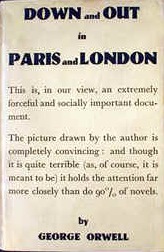
Down and Out in Paris and London is the first full-length work by the English author George Orwell, published in 1933. It is a memoir in two parts on the theme of poverty in the two cities. Its target audience was the middle- and upper-class members of society—those who were more likely to be well educated—and it exposes the poverty existing in two prosperous cities: Paris and London. The first part is an account of living in near-extreme poverty and destitution in Paris and the experience of casual labour in restaurant kitchens. The second part is a travelogue of life on the road in and around London from the tramp's perspective, with descriptions of the types of hostel accommodation available and some of the characters to be found living on the margins.

Homage to Catalonia is George Orwell's personal account of his experiences and observations fighting in the Spanish Civil War for the POUM militia of the Republican army.
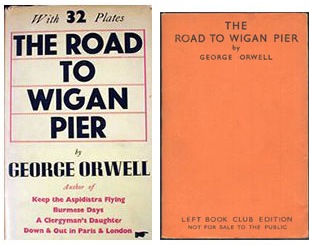
The Road to Wigan Pier is a book by the English writer George Orwell, first published in 1937. The first half of this work documents his sociological investigations of the bleak living conditions among the working class in Lancashire and Yorkshire in the industrial north of England before World War II. The second half is a long essay on his middle-class upbringing, and the development of his political conscience, questioning British attitudes towards socialism. Orwell states plainly that he himself is in favour of socialism, but feels it necessary to point out reasons why many people who would benefit from socialism, and should logically support it, are in practice likely to be strong opponents.

George Woodcock was a Canadian writer of political biography and history, an anarchist thinker, a philosopher, an essayist and literary critic. He was also a poet and published several volumes of travel writing. In 1959 he was the founding editor of the journal Canadian Literature which was the first academic journal specifically dedicated to Canadian writing. He is most commonly known outside Canada for his book Anarchism: A History of Libertarian Ideas and Movements (1962).
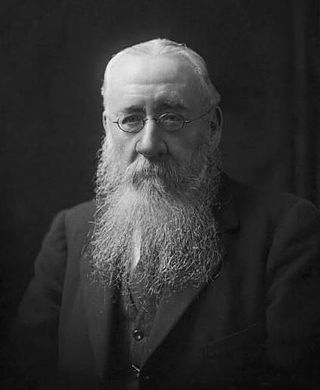
George Edward Bateman Saintsbury, FBA, was an English critic, literary historian, editor, teacher, and wine connoisseur. He is regarded as a highly influential critic of the late 19th and early 20th century.
Victor Gollancz Ltd was a major British book publishing house of the twentieth century and continues to publish science fiction and fantasy titles as an imprint of Orion Publishing Group.

Tropic of Cancer is an autobiographical novel by Henry Miller that is best known as "notorious for its candid sexuality", with the resulting social controversy considered responsible for the "free speech that we now take for granted in literature." It was first published in 1934 by the Obelisk Press in Paris, France, but this edition was banned in the United States. Its publication in 1961 in the United States by Grove Press led to obscenity trials that tested American laws on pornography in the early 1960s. In 1964, the U.S. Supreme Court declared the book non-obscene. It is regarded as an important work of 20th-century literature.
The Left Book Club was a publishing group that exerted a strong left-wing influence in Great Britain from 1936 to 1948.
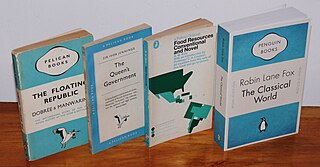
Pelican Books is a non-fiction imprint of Penguin Books founded by Allen Lane and V. K. Krishna Menon. It publishes inexpensive paperbacks of academic topics intended to reach a broader audience. The imprint originally operated from 1937 to 1984, and was relaunched in April 2014.
"Inside the Whale" is an essay in three parts written by George Orwell in 1940. It is primarily a review of Tropic of Cancer by Henry Miller with Orwell discoursing more widely over English literature in the 1920s and 1930s. The biblical story of Jonah and the whale is used as a metaphor for accepting experience without seeking to change it, Jonah inside the whale being comfortably protected from the problems of the outside world. It was published, alongside two other pieces by Orwell, 11 March 1940 by Gollancz in Orwell's first collection of essays, Inside the Whale and Other Essays.
The Fortnightly Review was one of the most prominent and influential magazines in nineteenth-century England. It was founded in 1865 by Anthony Trollope, Frederic Harrison, Edward Spencer Beesly, and six others with an investment of £9,000; the first edition appeared on 15 May 1865. George Henry Lewes, the partner of George Eliot, was its first editor, followed by John Morley.
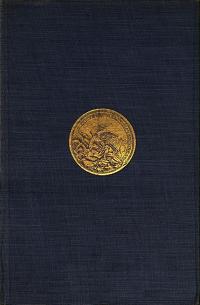
The Twilight of the Gods and Other Tales is a collection of fantasy short stories by Richard Garnett, generally considered a classic in the genre. Its title notwithstanding, the collection "has nothing to do with the Norse gods—although it draws upon everything else, from Arabic legends and Chinese fairy tales to Roman history and Greek mythology." The title story actually concerns the release of Prometheus, upon the ultimate eclipse of Greek paganism by Christianity, from the torture to which he was sentenced by Zeus.
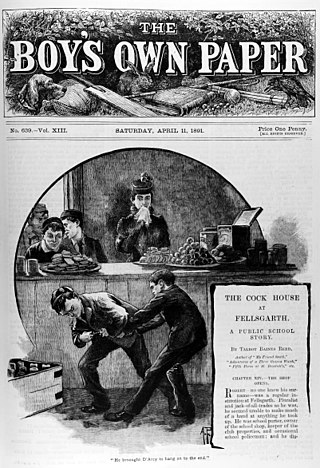
Magazines intended for boys fall into one of three classifications. These are comics which tell the story by means of strip cartoons; story papers which have several short stories; and pulp magazines which have a single, but complete, novella in them. The latter were not for the younger child and were often detective or western in content and were generally greater in cost. Several titles were published monthly whereas the other two categories were more frequent.
"Boys' Weeklies" is an essay by George Orwell in which he analyses those weekly story-paper publications for boys which were current around 1940. After being published in Horizon in abridged form, it was published alongside two of his other pieces in Inside the Whale and Other Essays from Victor Gollancz Ltd.

The bibliography of George Orwell includes journalism, essays, novels, and non-fiction books written by the British writer Eric Blair (1903–1950), either under his own name or, more usually, under his pen name George Orwell. Orwell was a prolific writer on topics related to contemporary English society and literary criticism, who has been declared "perhaps the 20th century's best chronicler of English culture." His non-fiction cultural and political criticism constitutes the majority of his work, but Orwell also wrote in several genres of fictional literature.
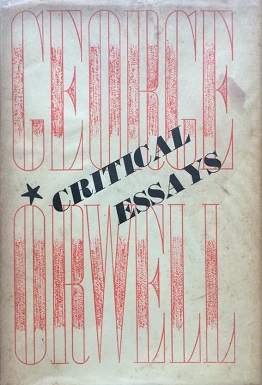
Critical Essays (1946) is a collection of wartime pieces by George Orwell. It covers a variety of topics in English literature, and also includes some pioneering studies of popular culture. It was acclaimed by critics, and Orwell himself thought it one of his most important books.
New Writing was a popular literary periodical in book format founded in 1936 by John Lehmann and committed to anti-fascism.

"Reflections on Gandhi" is an essay by George Orwell, first published in 1949, which responds to Mahatma Gandhi's autobiography The Story of My Experiments with Truth. The essay, which appeared in the American magazine Partisan Review, discusses the autobiography and offers both praise and criticism to Gandhi, focusing in particular on the effectiveness of Gandhian nonviolence and the tension between Gandhi's spiritual worldview and his political activities. One of a number of essays written by Orwell and published between Animal Farm (1945) and Nineteen Eighty-Four (1949), "Reflections on Gandhi" was the last of Orwell's essays to be published in his lifetime and was not republished until after his death.











